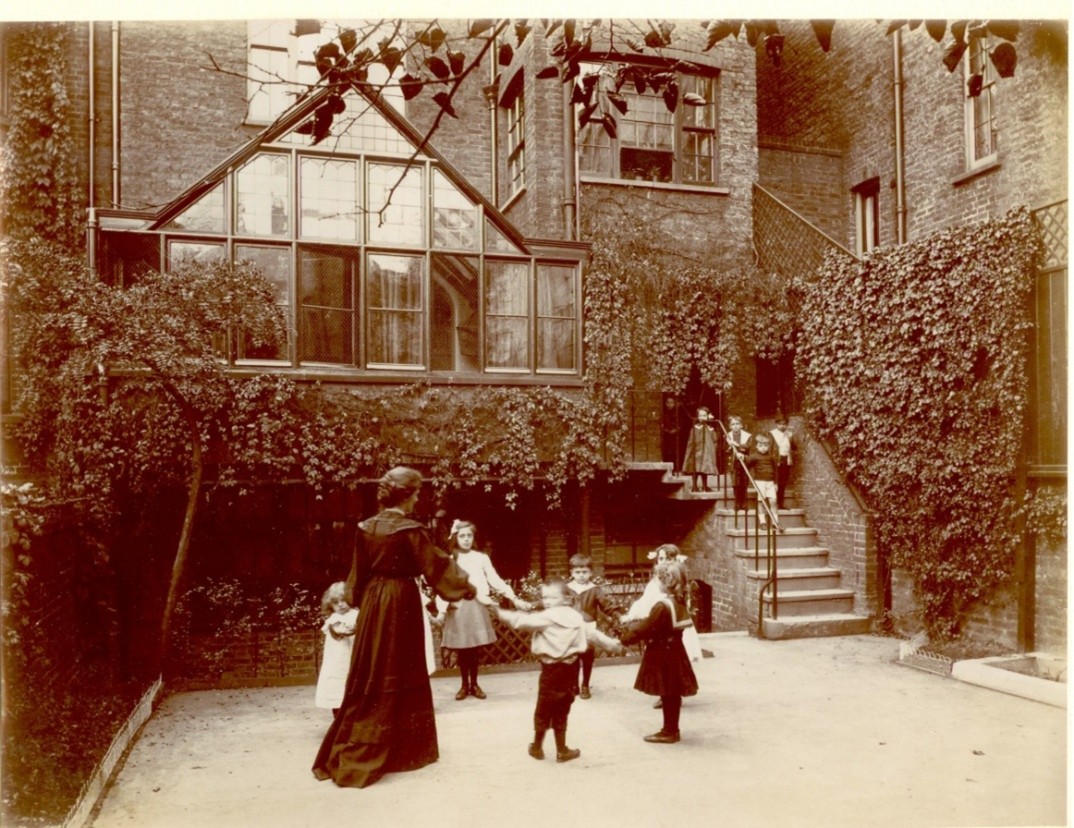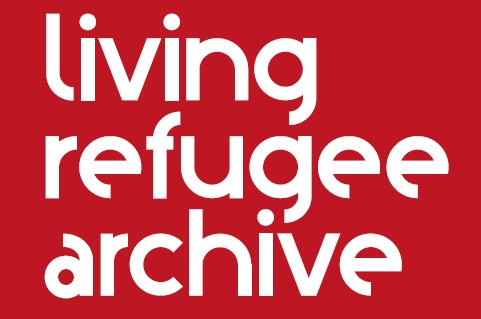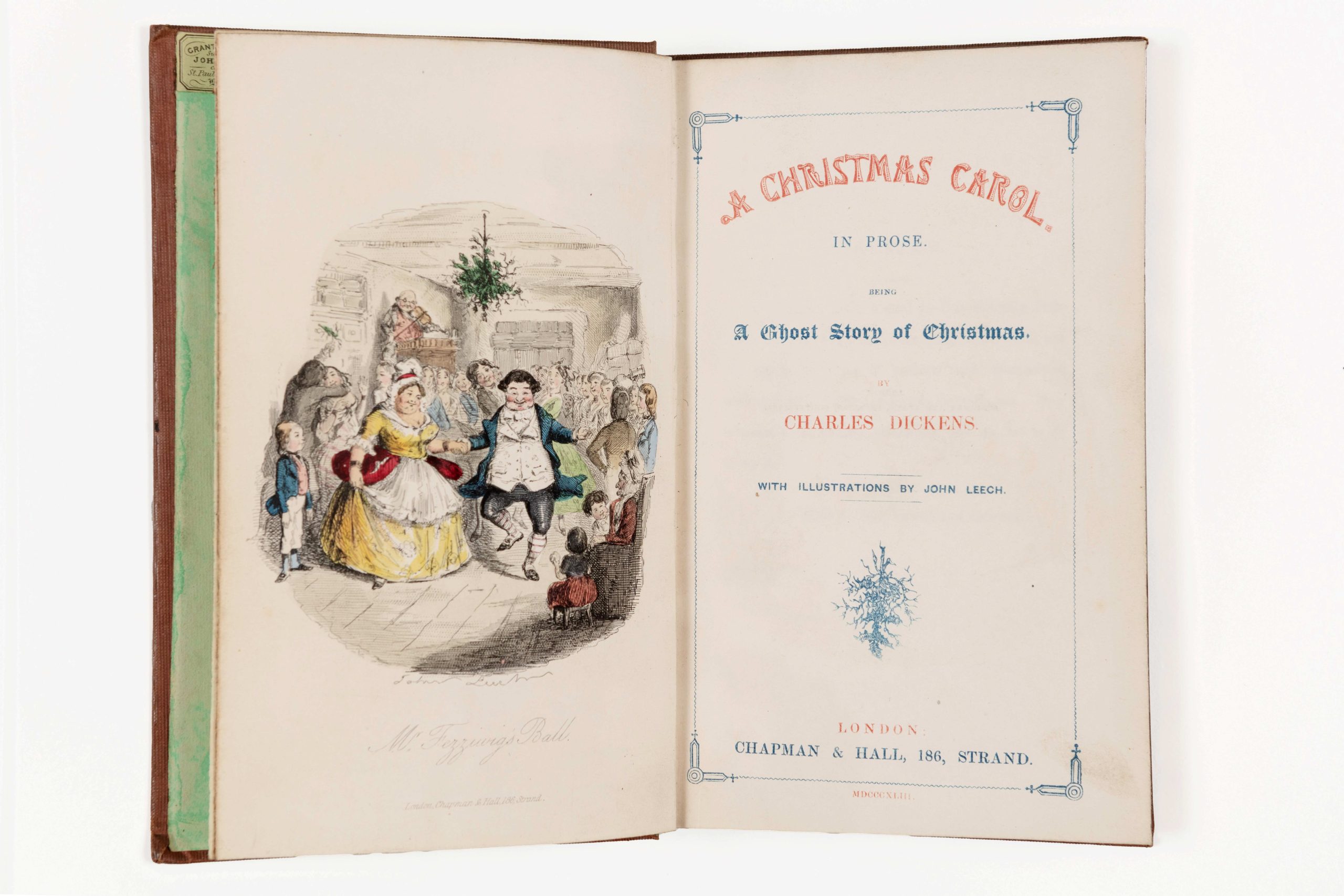During May we celebrated Fun and Games. Few were more influential on the origins of fun and games in early years education than German pedagogue Friedrich Froebel (1782 – 1852). To talk us through Froebel’s impact, particularly as applied to the development and use of his ideas in nineteenth century education, is Kornelia Kepok, archivist at the University of Roehampton Archives.
A pioneering philosophy
When we think of early childhood education today, it is impossible to ignore the central role of play. Classrooms filled with blocks, songs, story time, and imaginative games owe much to the vision of Friedrich Froebel (1782–1852), the German educator widely recognised as the inventor of the kindergarten. Froebel’s pioneering philosophy placed play at the heart of learning, an idea both radical and transformative in his time, and still central in early years practice today.
In this post, we draw on the resources of the Froebel Archive for Childhood Studies at the University of Roehampton to explore Froebel’s approach to education and the enduring importance of play, games, and songs in Froebelian settings.
To begin with, in his work The Education of Man (1826), Froebel wrote:
‘Play is the highest expression of human development in childhood, for it alone is the free expression of what is in a child’s soul.‘
Friedrich Froebel
This powerful statement continues to resonate through the training materials, notebooks, and diaries preserved in the Froebel Archive. In fact, Froebel saw play as the key to how children make sense of experience, reflect cultural values, and communicate symbolically.
Froebel’s Gifts and Occupations
Froebel regarded each child as a unique expression of the divine order of nature. His educational philosophy – rooted in the concept of Unity, framed learning as an interconnected, holistic process. To this end, he argued that education should nurture the child’s spiritual, social, and physical development. This holistic and child-led approach placed play not as leisure, but as a vital force for growth and learning.

Central to Froebel’s pedagogy were his Gifts – or Gaben in German – given to children to manipulate and introduced in sequence. These prominently included soft balls (Gift 1) and wooden blocks (Gifts 3–6) and formed the beginnings of what is known as block play. Each was intended to reveal geometric and mathematical relationships through hands-on exploration. The Froebel Archive contains teacher training notes and lesson plans detailing how these gifts were used. For example, Gift 3 – a set of eight wooden cubes – was used to explore concepts such as symmetry, balance, and part-whole relationships.


Complementing the Gifts were Occupations – activities like paper folding, weaving, and clay modelling. These helped children develop spatial reasoning, dexterity, and creativity, while also nurturing a sense of pride in their accomplishments.
Left: Doris Densham “Occupations”, c1918. © Froebel Archive for Childhood Studies, University of Roehampton.
The beginnings of the kindergarten
Froebel’s vision of nurturing the whole child was manifested in the establishment of the kindergarten in 1836. His ‘garden for children’ and a ‘garden (full) of children’ – in its literal meaning, provided the nurturing environment where children could grow through guided, purposeful play. This model incorporated the natural world, with children cultivating individual garden plots while also caring for shared spaces, fostering both independence and community spirit.

Curriculum notebooks from the Froebel Archive reveal how play-based learning was seamlessly woven into everyday kindergarten life. Activities such as singing games, storytelling, and group play extended beyond entertainment, fostering key developmental skills including communication, cooperation, and emotional expression.
Right: Michaelis Free Kindergarten, Playing with Froebel’s Gifts, c1900. © Froebel Archive for Childhood Studies, University of Roehampton.

Play and social development
Froebel placed strong emphasis on the social nature of play. Circle games, imaginative role play, and shared narratives helped children learn to take turns, empathise with others, and develop a sense of mutual responsibility, laying the foundations for moral awareness and social cohesion.

This ethos is captured in the notebooks of Froebel-trained teachers such as Fanny Paul, who in 1892 recorded lists of games and rhymes, one of them being a ball game where children were passing and throwing a ball to each other:
“Ball how I do love thee
With delight I move thee
I will play with thee
Happy then I’ll be.”Fanny Paul
She notes that the child was ‘perfectly happy in the possession of the ball as its plaything’, illustrating how deeply play was linked to emotional wellbeing.

Such accounts highlight how play supports not only cognitive and physical development, but also emotional resilience and social confidence.
Conclusion
In summary, Froebel’s conviction that ‘play is the engine of real learning’ remains profoundly relevant. His integration of games and creative activity into early education was not simply engaging, but intellectually and morally purposeful. Behind every song, building block, and skipping game lay thoughtful pedagogical intent.
The Froebel Archive for Childhood Studies at the University of Roehampton plays a vital role in preserving the history and legacy of Froebel’s educational philosophy. It works closely with the Froebel Trust (https://www.froebel.org.uk/ ), whose mission is to promote Froebel’s holistic, child-centred approach across the early childhood sector, both in the UK and internationally, and to uphold a vision of early education where children learn through joyful and meaningful play.
Article by Kornelia Cepok, Archivist at the University of Roehampton Archives and Special Collections.
Edited by Jake Doyle, Blog Coordinator for Explore Your Archive.
Further information
For further information about the University of Roehampton Archives and Special Collections, please explore their web page below:
https://library.roehampton.ac.uk/archives



